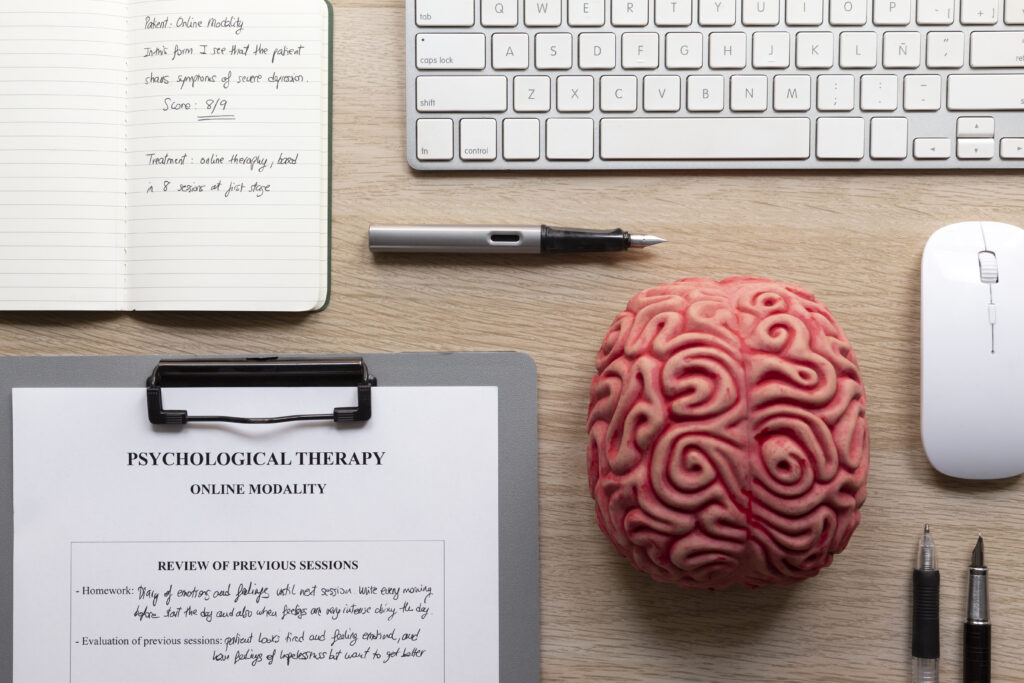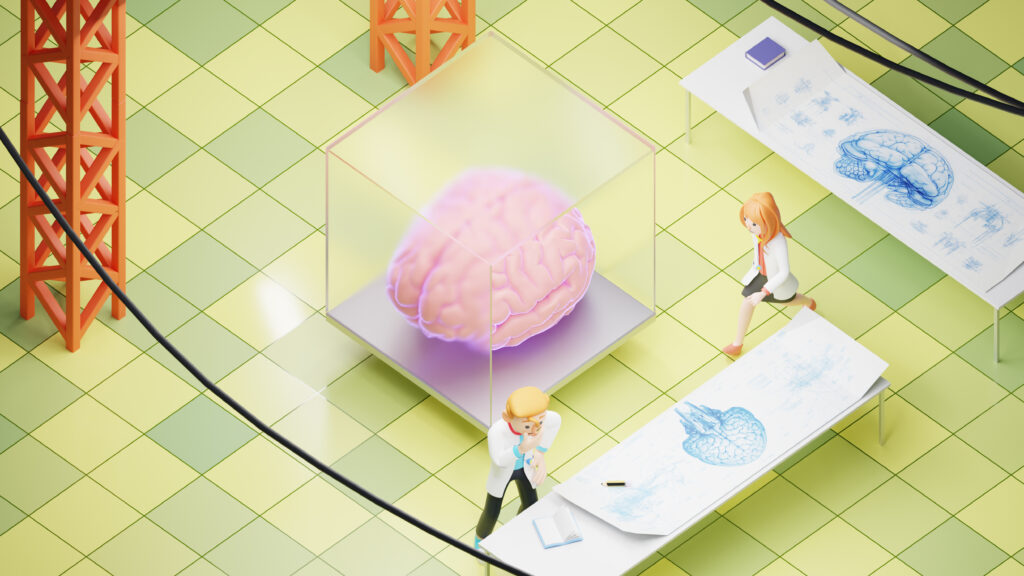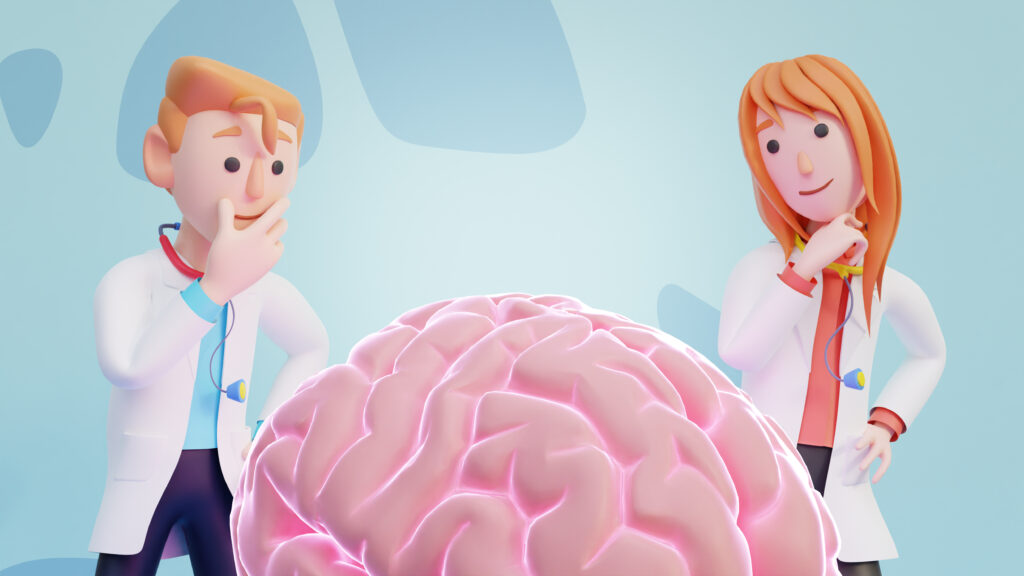Understanding Brain Plasticity: The Science Behind Brain Training

Why Train Your Brain? The Benefits of Cognitive Enhancement

Training your brain is not just about boosting intelligence or improving memory—although these are significant benefits. The broader advantages of cognitive training extend to various aspects of life, including mental health, emotional resilience, and overall quality of life.
1. Enhanced Memory and Learning Abilities
One of the most obvious benefits of brain training is improved memory. As you engage in activities that challenge your brain, such as memorizing information, learning new skills, or practicing recall exercises, you enhance your brain’s ability to retain and retrieve information. This can be particularly beneficial as you age, helping to mitigate age-related cognitive decline and maintain mental sharpness.
2. Improved Focus and Attention
In a world full of distractions, the ability to focus and maintain attention is invaluable. Brain training exercises that target attention and concentration can help you develop the mental discipline needed to stay on task and avoid the pitfalls of multitasking. This enhanced focus can lead to greater productivity and success in both personal and professional endeavors.
3. Better Problem-Solving and Critical Thinking
Cognitive training can also improve your problem-solving and critical thinking abilities. By engaging in activities that require logical reasoning, pattern recognition, and strategic thinking, you can sharpen your mind’s ability to analyze situations, identify solutions, and make informed decisions. This can be particularly useful in complex situations where quick and effective problem-solving is required.
4. Emotional Resilience and Stress Management
The benefits of brain training extend beyond cognitive abilities to emotional well-being. Practices such as mindfulness meditation, which train the brain to stay present and focused, can enhance emotional resilience and reduce stress. By training your brain to manage emotions effectively, you can develop a greater sense of inner calm and balance, leading to improved mental health and overall well-being.
5. Delaying the Onset of Cognitive Decline
As we age, the risk of cognitive decline and neurodegenerative diseases such as Alzheimer’s increases. However, research suggests that regular brain training can help delay the onset of these conditions by keeping the brain active and engaged. By continuously challenging your brain with new and complex tasks, you can promote neurogenesis (the growth of new neurons) and maintain cognitive function well into old age.
Effective Techniques to Train Your Brain

Now that we understand the benefits of brain training, the next step is to explore the various techniques and practices that can help you enhance your cognitive abilities. The following are some of the most effective methods for training your brain:
1. Engage in Mental Exercises and Puzzles
One of the most straightforward ways to train your brain is through mental exercises and puzzles. Activities such as crossword puzzles, Sudoku, chess, and brainteasers challenge your mind to think critically and solve problems. These exercises stimulate different areas of the brain, promoting neuroplasticity and cognitive growth.
To maximize the benefits of mental exercises, it’s important to vary the types of puzzles you engage in. This prevents your brain from becoming too accustomed to a specific type of challenge and encourages the development of diverse cognitive skills.
2. Learn a New Skill or Hobby
Learning a new skill or hobby is an excellent way to train your brain. Whether it’s picking up a musical instrument, learning a new language, or mastering a new form of art, the process of acquiring new knowledge and skills stimulates cognitive growth. The more complex and challenging the skill, the greater the cognitive benefits.
For example, learning a musical instrument involves reading music, coordinating hand movements, and listening to pitch—all of which engage different parts of the brain. Similarly, learning a new language requires memorization, pronunciation, and grammar comprehension, which can enhance your brain’s capacity for language processing and communication.
3. Practice Mindfulness and Meditation
Mindfulness and meditation are powerful tools for brain training, particularly in the realm of emotional regulation and mental clarity. Mindfulness involves paying attention to the present moment without judgment, while meditation typically involves focused attention on a specific object, thought, or activity.
These practices have been shown to increase gray matter in areas of the brain associated with memory, learning, and emotional regulation. Regular mindfulness practice can improve attention, reduce stress, and enhance overall cognitive function. It also trains the brain to become more resilient to negative emotions and stressors, promoting a state of mental well-being.
4. Exercise Regularly
Physical exercise is not only beneficial for your body but also for your brain. Regular aerobic exercise, such as running, swimming, or cycling, has been shown to increase the production of brain-derived neurotrophic factor (BDNF), a protein that supports the growth and survival of neurons. Exercise also improves blood flow to the brain, which enhances cognitive function and reduces the risk of cognitive decline.
Incorporating physical activity into your daily routine is a simple yet effective way to support brain health. Even moderate exercise, such as walking or yoga, can have significant cognitive benefits.
5. Get Adequate Sleep
Sleep is essential for brain health and cognitive function. During sleep, the brain undergoes processes that consolidate memories, remove toxins, and repair neural connections. Chronic sleep deprivation can impair cognitive abilities, including memory, attention, and problem-solving.
To optimize brain function, it’s important to prioritize sleep and maintain a consistent sleep schedule. Aim for 7-9 hours of quality sleep per night, and practice good sleep hygiene by creating a relaxing bedtime routine and minimizing exposure to screens before bed.
6. Maintain a Balanced Diet
Your brain needs the right nutrients to function optimally. A balanced diet rich in antioxidants, healthy fats, vitamins, and minerals can support cognitive health and prevent cognitive decline. Foods such as fatty fish, nuts, berries, leafy greens, and whole grains are particularly beneficial for brain health.
In addition to eating a nutritious diet, it’s important to stay hydrated. Dehydration can impair cognitive function and lead to difficulties with concentration, memory, and mood.
7. Socialize and Build Strong Relationships
Social interaction is a key component of brain health. Engaging in meaningful conversations, participating in group activities, and building strong relationships can stimulate cognitive function and promote emotional well-being. Socializing challenges your brain to process information, communicate effectively, and navigate complex social dynamics.
Research has shown that people with strong social connections tend to have better cognitive health and a lower risk of dementia. To train your brain, make an effort to connect with others, whether through in-person interactions or virtual platforms.
Incorporating Brain Training into Your Daily Routine

Training your brain doesn’t have to be a time-consuming or complicated process. By incorporating simple brain-boosting activities into your daily routine, you can consistently challenge your mind and reap the benefits of cognitive enhancement. Here are some practical tips for integrating brain training into your everyday life:
1. Set Aside Time for Mental Exercises
Dedicate a few minutes each day to engaging in mental exercises, such as puzzles, brain games, or memory challenges. These activities can be done during breaks, while commuting, or as a relaxing evening routine.
2. Make Learning a Lifelong Habit
Embrace the mindset of continuous learning. Whether it’s reading a book, taking an online course, or exploring a new hobby, commit to expanding your knowledge and skills throughout your life. This not only trains your brain but also enriches your experiences and personal growth.
3. Practice Mindfulness Throughout the Day
Incorporate mindfulness practices into your daily routine by taking moments to pause, breathe, and focus on the present. This can be done during everyday activities, such as eating, walking, or working. Mindfulness helps train your brain to stay present and focused, reducing stress and enhancing cognitive function.
4. Stay Physically Active
Make physical exercise a regular part of your routine. Whether it’s a morning jog, a yoga session, or an evening walk, staying active supports both your body and brain. Consider combining physical activity with mental exercises, such as listening to educational podcasts or practicing mindfulness during a workout.
5. Prioritize Sleep and Nutrition
Ensure that you’re getting enough sleep and eating a balanced diet. These foundational aspects of health are critical for brain function and cognitive performance. Plan your meals and bedtime routines to support optimal brain health.
6. Cultivate Social Connections
Make an effort to connect with others regularly. Whether it’s catching up with a friend, joining a social group, or participating in community activities, social interactions can stimulate your brain and enhance your emotional well-being.
The Long-Term Impact of Brain Training

The benefits of brain training are cumulative and long-lasting. By consistently challenging your mind and engaging in activities that promote cognitive health, you can build a stronger, more resilient brain that serves you well throughout life. The efforts you invest in training your brain today will pay off in the form of enhanced memory, improved focus, better problem-solving skills, and greater emotional resilience.
Moreover, the habits you develop through brain training can contribute to a higher quality of life, with increased mental clarity, reduced stress, and a greater sense of fulfillment. As you continue on your journey to train your brain, remember that the goal is not just to become smarter or more efficient, but to achieve a state of cognitive mastery and mental well-being that enriches every aspect of your life.
Conclusion
Training your brain is a powerful way to enhance your cognitive abilities, improve mental health, and lead a more fulfilling life. By understanding the science of neuroplasticity and incorporating effective brain-training techniques into your daily routine, you can unlock the full potential of your mind. Whether you’re looking to boost memory, sharpen focus, or build emotional resilience, the path to cognitive mastery begins with the decision to train your brain.
So, take the first step today—engage in a mental exercise, learn a new skill, or simply practice mindfulness. Your brain is capable of extraordinary growth and transformation, and with the right training, you can achieve a level of cognitive excellence that enhances every aspect of your life.



